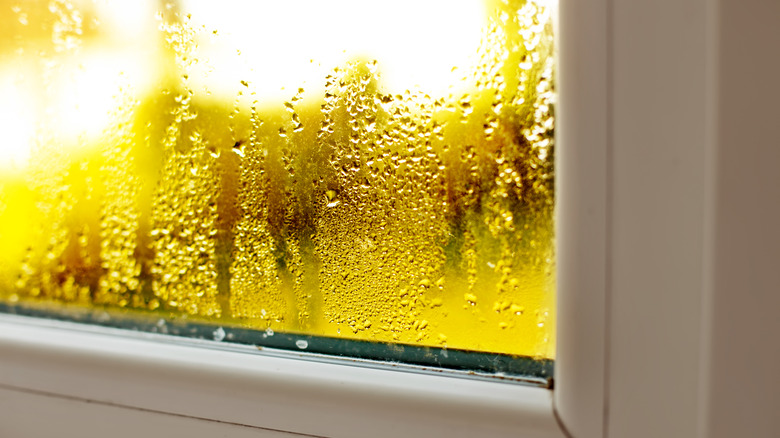What's Causing Your Windows To Fog Up During The Winter (And How To Fix It)
If you're noticing fog or droplets of water on the inside of your windows during the colder months, it's not necessarily a bad thing. Condensation easily forms on windows when the temperature outside is low and your home is warm. Since one side of the glass is chilly and the other has more humidity and a higher temperature, condensation is a natural occurrence. This can also happen during other seasons like summer, when your home is cool and it's hot outdoors.
While condensation is not always a problem and can actually be a sign that your windows are more energy efficient, too much could lead to other problems for your home. When there's an abundance of condensation due to humidity, the water could cause issues with mildew and mold, affecting other areas of the house such as insulation, wood fixtures, or carpeting. Additionally, moisture that gets trapped between walls and ceilings could cycle through thawing and freezing, causing harm to these structures. Luckily, lowering the humidity in your home will help to get rid of window fog in winter.
Fixing fogged up windows during winter
One simple way to reduce humidity levels, stop condensation on your windows, and get rid of that foggy appearance is by using an exhaust fan when cooking or showering. You'll want to let the fan run for about 20 minutes after you've turned off the shower or stove to ensure the moist air is gone. Dehumidifiers are a great and easy choice for lowering household humidity. And, for those with an abundance of houseplants, ensuring not to give them too much water and placing them in a sunny room will help to avoid high humidity.
Having better air circulation throughout your home is another great way to fix your foggy windows. This can be done by leaving the doors to bedrooms, bathrooms, and other rooms open and turning on fans. Adjusting your thermostat also aids in reducing condensation by bringing your home's temperature closer to the outside temperature, creating a less drastic difference on your window panes and preventing the water droplets from forming, though this could end up being a more uncomfortable option. By taking steps to combat excess moisture in your home, you can stop your windows from fogging up and prevent damage from humidity.

